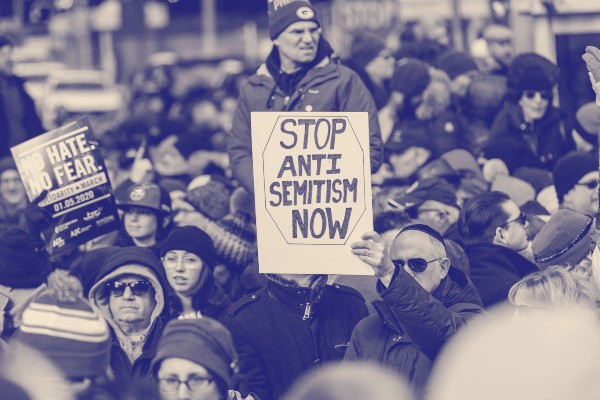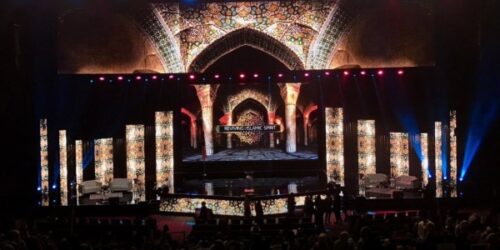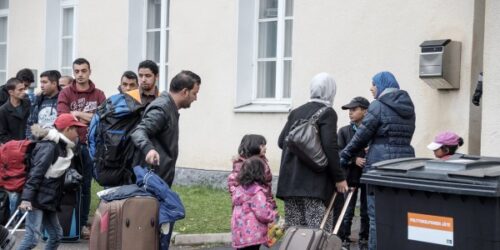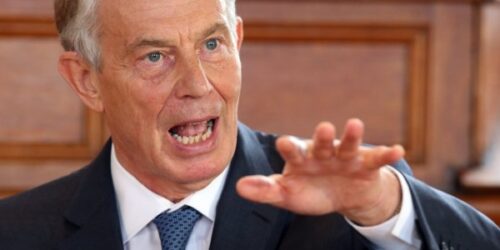Horowitz’s Insights on Islamic Anti-Semitism: Exploring Controversy and Dialogue
In the intricate tapestry of modern discourse, certain topics stand as polarizing pillars, inviting both rigorous analysis and fervent debate. One such subject that has garnered significant attention is the issue of Islamic anti-Semitism. Delving into this contentious terrain, renowned scholar David Horowitz recently graced the University of Southern California (USC) with his insights on the matter. In this article, we explore Horowitz’s thought-provoking discourse, juxtaposing it against the backdrop of Muhammad’s historic protest, which continues to cast a shadow on discussions of Islamic anti-Semitism.

Horowitz at USC: Navigating the Discourse
As a seasoned expert on the intricacies of anti-Semitism, David Horowitz arrived at USC with a mission: to dissect the multifaceted nuances of Islamic anti-Semitism. His lecture aimed not only to elucidate the historical context but also to shed light on the contemporary manifestations of this complex issue.
Muhammad’s Protest: A Historical Lens
Centuries ago, Muhammad’s protest against anti-Semitism echoed through history, leaving an indelible mark. This event, though rooted in its time, remains a touchstone for discussions on Islamic anti-Semitism today. By understanding the historical underpinnings of this protest, we can better navigate the intricate landscape of opinions and perspectives surrounding the topic.
Illuminating Perspectives: The Continuity of Dialogue
One of Horowitz’s key insights revolved around dispelling misconceptions. He argued that Islamic anti-Semitism, while a topic of concern, should not be synonymous with the broader Muslim community. By engaging in nuanced discussions, we can ensure that the conversation remains focused on the issue itself, rather than being reduced to sweeping generalizations.
Encouraging Interfaith Conversations
Horowitz advocated for interfaith dialogues as a means of fostering understanding and empathy. By bringing together individuals from diverse backgrounds, these conversations have the potential to transcend biases and promote mutual respect. This approach aligns with the overarching theme of education as a catalyst for change.
Modern Manifestations: Recognizing Contemporary Realities
In the digital age, the impact of anti-Semitic sentiments has evolved through the proliferation of social media platforms. Horowitz highlighted the need to address the dissemination of hate speech and misinformation in online spaces. By acknowledging this new dimension, we can effectively counteract its influence.
Bridging the Gap: Education and Awareness
Horowitz emphasized the importance of education in combatting anti-Semitism. By promoting awareness and understanding, society can work collectively to bridge the gap between different worldviews. This educational approach seeks not only to address existing biases but also to prevent their perpetuation in future generations.
A Call to Action: Navigating the Path Forward
Horowitz’s discourse at USC serves as a rallying cry for open and constructive conversations. By fostering an environment where diverse opinions are welcomed and respected, we can collectively address the issue of Islamic anti-Semitism while fostering greater harmony among differing perspectives.
Empowering Change through Knowledge
In the pursuit of change, knowledge stands as a potent weapon. Horowitz’s call to empower individuals with accurate information encourages a proactive stance against anti-Semitism. By arming ourselves with knowledge, we can dismantle the barriers that perpetuate prejudice and misunderstanding.
A Continual Journey
The legacy of Muhammad’s protest intertwines with David Horowitz’s contemporary insights, creating a narrative that spans centuries. The discourse surrounding Islamic anti-Semitism remains as relevant as ever, beckoning us to engage thoughtfully, critically, and empathetically. Through dialogue, education, and a commitment to change, we have the power to reshape the discourse and transcend the shadows of history. In conclusion, the exploration of Islamic anti-Semitism is a multifaceted endeavor that demands our attention, empathy, and critical thinking. David Horowitz’s discourse at USC serves as a catalyst for delving into this complex topic, shedding light on its historical roots and contemporary manifestations. By engaging in meaningful conversations, promoting education, and embracing a stance of inclusivity, we can collectively work towards dismantling the barriers that perpetuate prejudice and division. The path forward is illuminated by knowledge, empathy, and a shared commitment to a more harmonious future.



